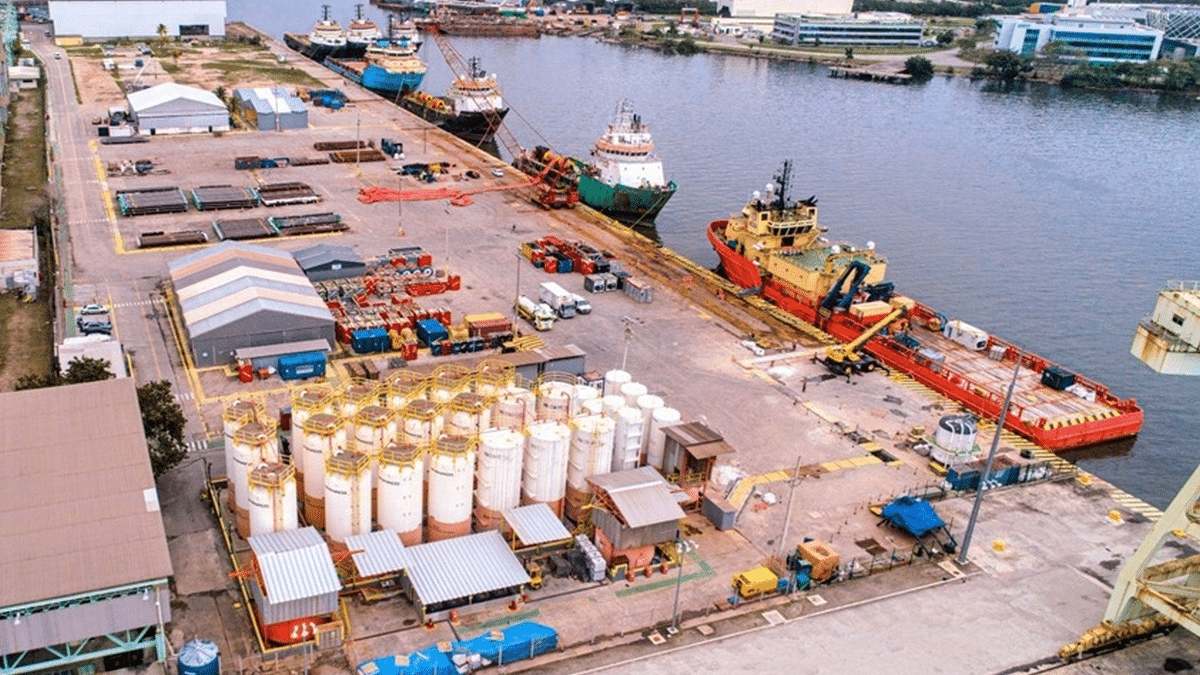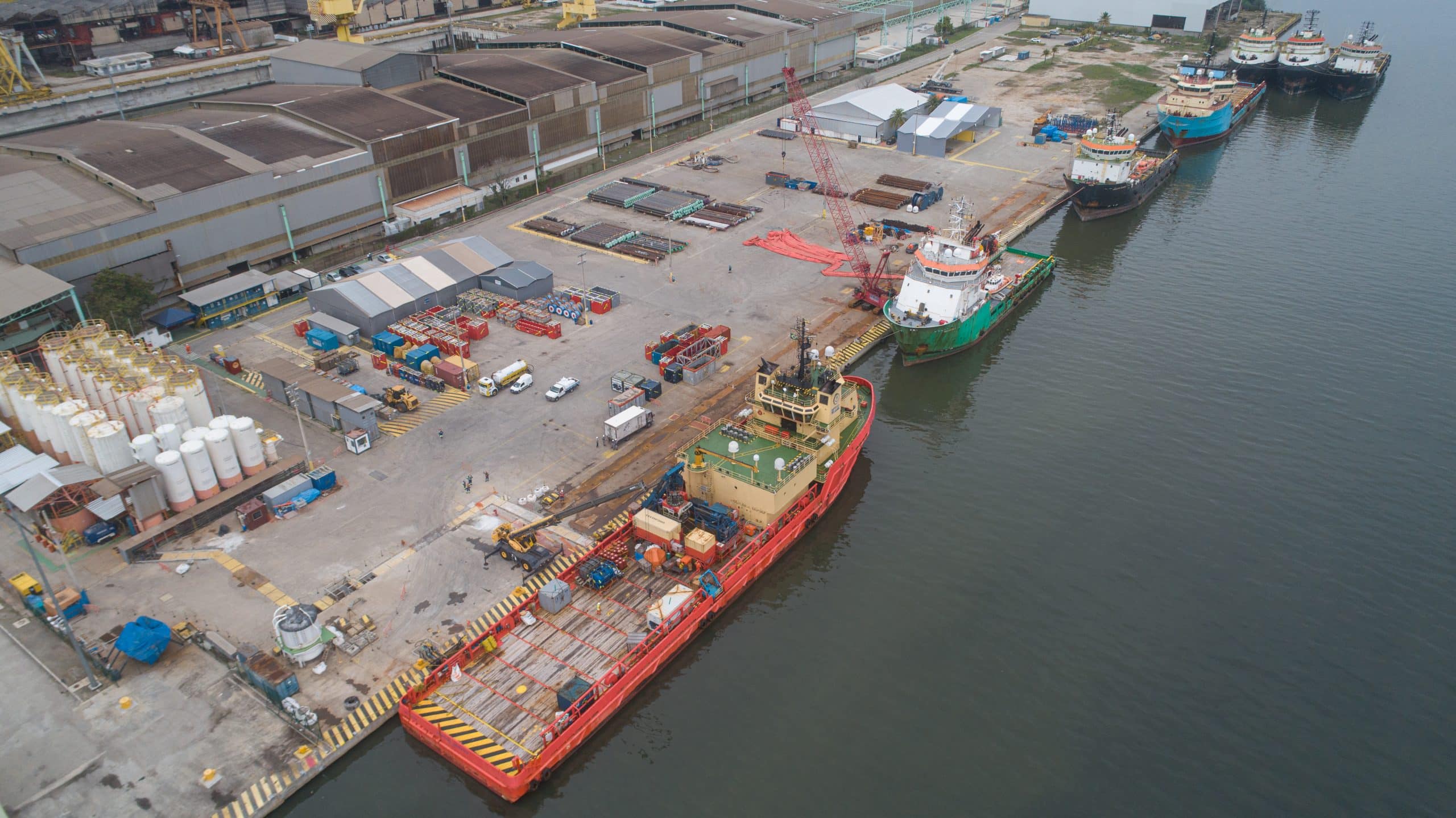TotalEnergies secures logistics for Brazilian pre-salt production
A French energy group has selected a shore base to support its oil production project in the Santos Basin offshore Brazil French energy group TotalEnergies has selected Wilson Sons’ Rio Base in Guanabara Bay as the main offshore supply base for floating production assets on the Lapa field. This 65,000-m2 base, located in Caju in the […]
- 25/06/2025
- 2 minutes

A French energy group has selected a shore base to support its oil production project in the Santos Basin offshore Brazil
French energy group TotalEnergies has selected Wilson Sons’ Rio Base in Guanabara Bay as the main offshore supply base for floating production assets on the Lapa field.
This 65,000-m2 base, located in Caju in the port district of Rio de Janeiro, has five mooring berths and facilities for cargo handling, storage for materials and equipment, environmental services, and has fluid and bulk plants to support drilling campaigns.
TotalEnergies and Wilson Sons plan to develop facilities at the base for water and waste management.
Wilson Sons said it will use customised software for inventory, cargo flow management and control during this contract period.
TotalEnergies’ operations will also be supported by the Wilson Sons’ Guaxindiba pipe yard, 20 km from Brazilian company’s Niterói Base. It stores drilling pipes and other equipment in a 63,000 m2 area. Wilson Sons also supports pipeline inspection, hydro-jetting and securing permits from Brazilian authorities.
TotalEnergies is the operator of the Lapa field, which is 270 km from the Brazilian coast, and in June 2025 increased its interest to 48% following a swap with one of its investment partners in the asset.
Repsol Sinopec has a 25% stake in Lapa, and Shell now has 27% after it swapped its other 3% with TotalEnergies in return for the French company’s 20% interest in another Brazilian deepwater oil project, Gato do Mato.
TotalEnergies is developing the Lapa South-West tie-back to the floating production infrastructure to increase production by 25,000 barrels per day (b/d) upon start-up by the end of 2025, bringing total output of the field to 60,000 b/d.





